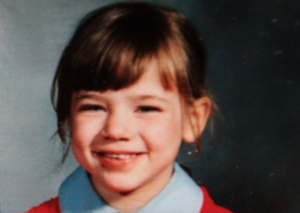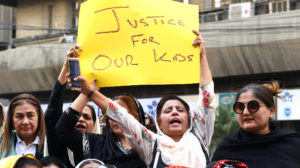The Cleveland child abuse scandal did not actually involve that much child abuse. Or so the story goes. In 1987, in the north-east of England, 121 children were removed from their homes and placed in care after medics and social workers claimed that terrible things had happened to them. After a huge backlash, 98 of those children were subsequently returned to their families. A consultant paediatrician by the name of Marietta Higgs was accused of “seeing signs of rape and buggery everywhere” and became the villain — rather than the men accused of gross child sexual abuse.
There was, of course, a public inquiry. It concluded that most of the diagnoses by Higgs and another paediatrician, Geoff Wyatt, were incorrect. Higgs was subsequently banned by her local health authority from dealing with child sex abuse cases. But this scandal is not what it seems, and it destroyed far more than the careers of two medics. It baked into child protection services a scepticism of children’s accounts of their own experiences.
The campaigning journalist Beatrix Campbell has followed the Cleveland case since it broke in 1987. A year later, her first book on the scandal, Unofficial Secrets: Child Sexual Abuse — The Cleveland Case, was published. In it, Campbell examines how Cleveland council made child sexual abuse a priority, engaging with medical experts and innovative diagnostic procedures, only to be met by a backlash from statutory services. Children had not been abused, it was decided. Rather, the scandal was a witch-hunt against parents.
Now, her new book, Secrets and Silence: Uncovering the Legacy of the Cleveland Child Sexual Abuse Case, revisits the scandal — with the proof necessary to back up her earlier suspicions. The 30-year rule allows certain government documents to be released publicly three decades after they entered the National Archive. Thanks to this, Campbell found evidence that “there was a cover-up, and that the doctors and social workers were not wrong about so many of those children having been sexually abused”.
Shocking failures led to the government inquiry coming to a completely false conclusion. For instance, the only international expert consulted was Dr Ralph Underwager, who in 1992 helped found the False Memory Syndrome Foundation — an organisation that claimed counsellors and parents were manipulating kids into believing they had been abused. Underwager became mired in controversy when, a year later, he gave an interview to a Dutch paedophile magazine in which he said that paedophiles should “boldly and courageously affirm what they choose”.
Campbell also found evidence that the Government knew at least 80% of the diagnoses of these children were correct — but hushed it up because the Treasury had warned that dealing with this abuse would be expensive. Saving money was more important than saving children. Local MP Stuart Bell set the agenda, saying it was simply “not possible” that all these children could have been abused. He became, says Campbell, “the advocate for accused adults”. Margaret Thatcher, who was prime minister at the time, made clear her deep mistrust of social workers, and of feminists. Two days before the inquiry was announced, she was asked if she would “allocate extra funds to deal with the rising rate of child abuse referrals”. She replied simply, “no”.
Support fell behind the police — who, Campbell argues, were the main culprits in enabling abusers to evade justice. “Cleveland had a macho, misogynistic police force,” she says. And, as has been proved time and time again, “asking a patriarchal service to police patriarchal behaviour is pointless”. Cleveland was unlike other authorities, “for example in Leeds, where there was a very well-developed, collegial culture between police, paediatricians, social workers, rape crisis centres”. In Cleveland, by contrast, police “were pretty much told they didn’t have to liaise with other professionals over child sexual abuse, and that was a complete disaster, and one that was repeated in many subsequent child abuse scandals”.
The media also failed, quickly falling in line with the government. National newspapers called for the blood of social workers, and the local Evening Gazette ran a “Give Us Back Our Children” campaign. Ultimately, no perpetrators were identified, let alone charged or convicted. Following the inquiry, 27 families sued the NHS, as well as the council and individual medics, costing the state £1 million in out-of-court settlements.
Campbell tells me that what she finds most cruel in this whole story is that the children at its heart — whose difficulties had prompted responses by professionals — were then subjected to a very public inquisition. Only a handful of those children have ever come forward to tell their stories, and just one has done so both before and after reading her social service records. When, at the age of 40, Minnie* first approached Campbell out of the blue, she asked: “Are there a few of us, like me?”
In Minnie’s eyes, Marietta Higgs — who one journalist at the time of the inquiry described as “the most hated woman in Britain” — was a hero. Minnie met her after being referred to social services at the age of 10, following her brother’s revelations about child sexual abuse at the hands of their sadistic stepfather. Minnie was examined by Higgs, who found signs of rape. Higgs made Minnie feel safe. “She was my saviour,” she says.
For Campbell, this is what a good child protection system looks like: “The abused child who describes an experience of feeling saved.” And yet, the name of Marietta Higgs has long been used as a warning against overactive imaginations in social workers, doctors or other advocates for children. It has been evoked to discredit victims who choose to speak out later in life, as Minnie has.
The disgrace of it is that, when her name was first being dragged through mud, secret documents that vindicated Higgs’s conclusions were circulating around Westminster. A confidential dossier put together by the Northern Regional Health Authority was sent to the Ministry of Health in 1988 and presented to Parliament. It exonerated Higgs and accepted that around 70-75% of the diagnoses were correct. Campbell got hold of the document while updating her original book on Cleveland. She assumed that Higgs had read it, but when she visited her at her home in 2017, discovered she had not. Higgs has since retired.
One of the many disappointing things about the Cleveland scandal is that it had been preceded by a moment of enlightenment, largely triggered by feminist activism: people working in health and social services had been paying better attention to testimony about sexual abuse. Campbell sees the scandal as “a devastating example of a backlash against what feminists had achieved: as a result, all of that learning was thrown away, squandered, and condemned”.
As a result, the campaign by Cleveland parents, and the public humiliation of the doctors at the heart of the scandal, focused on the accused adults, rather than the vulnerable children. Jean La Fontaine, a professor emeritus at the London School of Economics who specialised in the study of sexual abuse, told the inquiry:
“Whenever we come to consider this issue, the children seem to get lost in the system. In the public inquiry, and before it, we heard a lot about parents’ rights. Perhaps it’s one of the tragedies of Cleveland that the children’s voices have not been heard.”
The legacy of this, which lasts to this day, is tragic. “It shaped the entire approach to child protection politics for three decades, and was completely catastrophic,” says Campbell. Services today are still heavily influenced by what happened in 1987, in that few children are believed, and it is almost impossible to secure a conviction when they are. We just have to look at the so-called grooming gangs scandals in Rochdale, Rotherham and elsewhere to see how children are routinely disbelieved. “We now have a situation where, if you want to sexually abuse children, you can just do it, because you will get away with it,” says Campbell.
This could have been stopped in 1987, when there was a unique opportunity in Cleveland to bring the prevalence of child sexual abuse out of the shadows. Instead, it set back the issue significantly. It plunged Britain back into a dark age, by telling future generations of abused children that if they spoke out, they would not be listened to. It also created professional anxiety among doctors and social workers, who feared being treated as Marietta Higgs was.
Campbell met endless obstacles in the course of her reporting, from unobtainable documents to the influence of “false memory” organisations on the general public. Campbell even found herself arguing with her publishers’ “sensitivity readers”, who were offended by the description of “anal dilation” being used to detect whether the children had been anally raped. “I am offended at child rape, and those that seek to cover it up,” she tells me. The truth is gruesome, but that doesn’t mean we should hide from it.
As for the Cleveland children, they are now well into adulthood. Aside from the small number that have ever spoken out, where are they now? “We don’t know what happened to them because there was no follow-up,” says Campbell. “It would be like 121 children falling off a cliff in a bus and surviving terrible injuries, and nobody was interested in how they managed.” We can only hope her reporting is the first step towards the public hearing these children’s stories again — and, this time, believing them.
*This name has been changed.
Disclaimer
Some of the posts we share are controversial and we do not necessarily agree with them in the whole extend. Sometimes we agree with the content or part of it but we do not agree with the narration or language. Nevertheless we find them somehow interesting, valuable and/or informative or we share them, because we strongly believe in freedom of speech, free press and journalism. We strongly encourage you to have a critical approach to all the content, do your own research and analysis to build your own opinion.
We would be glad to have your feedback.
Source: UnHerd Read the original article here: https://unherd.com/



